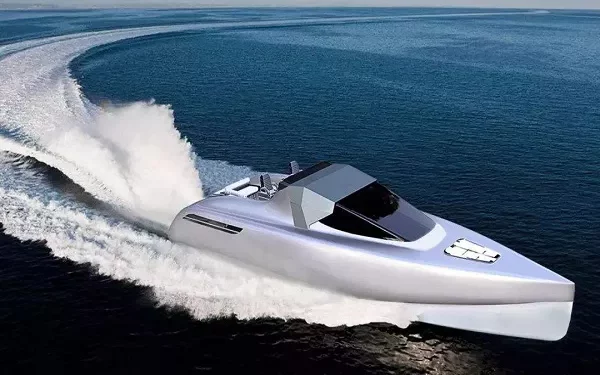The economic incentives have never been clearer, and even a small increase in fuel prices will make users aware that fuel quality management is so important!
When you have finished the busy and stressful work, you can finally step on the deck of the yacht, relax, enjoy the sun and sea breeze.
But about an hour into the voyage, one of the engines suddenly stalled.
You have to sail into the nearest port and be scrutinised by an engine specialist to learn that the problem is fuel related.
You are very upset because a fuel problem has disabled both of your engines.
From that point on, you decide to incorporate fuel management as an important part of your engine’s routine maintenance program.
Fuel management is not a safety issue.
Gas prices are skyrocketing, so you want to do everything you can to improve the fuel efficiency of your engine, and of course fuel reliability is one of those things that you have to be careful about.
Whether your yacht has a diesel engine or a petrol engine, there are two ways you can quickly run out of fuel: water pollution;
One is the long storage period.
When you leave the oil unused for up to three months, the higher aromatic hydrocarbons that provide the combustion values for octane and hexadecane begin to evaporate away.
After a season has passed, gasoline with 87 octane in the pump can turn into just enough to burn 80.
The diesel begins to segregate and disperse, and some of its Cousins begin to settle to the bottom of the tank.
Gasoline breaks down into resins, varnishes and acids.
In addition, when bad weather causes the ship to shake and stir the oil, those pollutants can make the fuel cloudy.
Once these things are sucked into the fuel filter and fuel pump, there is a high chance that the engine will stall.
To help you never experience that depressing moment again, consider using these methods to keep your fuel clean, starting with the filter and working your way through several steps and ending with the fuel cleaning equipment.
1. Filter The most famous fuel filter for recreational watercraft comes from Racor, a Parker Hannafin company.
Racor complete types of company’s production of spin pack filters, with a dirt collection bowl and drain valve, suitable for gasoline and diesel engines, the two-way Turbine series products for fuel filter for water separation of high moisture content, because the user can make use of lever, in the process of engine operation to complete the new filter replacement,
Reduce the inconvenience caused by shutdown and filter replacement at sea.
2. Additive manufacturers are numerous, and their products are as dazzling as painkillers, but some of the products that satisfy the needs of recreational boaters are at the forefront of fuel-boosting technology.
Starbrite, a manufacturer of storage stabilizers that can be used in automotive and boat fuels, as well as other maintenance products, recently launched StarTron, an enzyme-based additive that can be used in gasoline or diesel, solving many of the fuel-related problems.
“At the end of the active boating season, we typically get 50 to 60 calls a day from boat owners in the Northeast and Midwest complaining about stickiness like gum clogging their oil/water separators,” says Jeff Tegel, vice president of Starbrite.
The fuel begins to gelatinize due to the alcohol.
Alcohol refers to the enhanced alcohol in fuel oil, which acts as a kind of binder between hydrocarbons and water.
When you experience the effects of early or late seasonal temperature changes on the tank, the stored fuel is gelatinized over time.”
3, separator even pure diesel in the sale process will also contain 5% moisture.
Gasoline may contain 1-2% water, but alcohol can be 7-8% water.
No matter what kind of fuel tank is used for fuel storage, there will be a moisture problem, which is the source of fuel flooding. For this reason, water separators have become the main cleaning tool for diesel engines, Tegel explains.
“The role of the enzyme in StarTron’s additive is to unbind the fuel molecules so that they can be more easily bound by oxygen during the combustion process, so that the combustion becomes more complete.
Enzymes are biocatalysts, so they’re not consumed in the chemical reaction, but they increase the efficiency of the reaction and actually increase fuel economy, reduce emissions, and reduce pollution levels by 90 percent.”
4, cleaner, more and more phenomenon indicates that the yacht owners began to turn cleaning equipment as the optimization of fuel step, clean off the moisture in the fuel, and sediment for diesel power yachts, fuel oil cleaning equipment manufacturers ReversoPumps company President John soprano said: “if the filter is blocked, it will bring the steam resistance phenomenon.
If the filter is not good or blocked too much, the vacuum pressure forces the fuel into the engine and turns it into a bubbling liquid, which can cause as much damage as water entering the engine.”
ReversoPumps’ recent design of the FPS-150DC fuel cleaning system uses a Racor Turbine series filter in addition to a high-capacity AquaBlockII component.
The system can process up to 150 gallons of diesel per hour and has 100% clearance of water and any other algal adhesive in the tank, making the fuel clean and reliable.
ReversoPumps also offers systems that use Separ filters, including one that can process up to 500 gallons of fuel in an hour.
For larger powerboats and oceangoing vessels, AlfaLaval uses the same cleaning technology that has been proven on commercial vessels to produce fuel cleaning equipment that is completely reliable.
The new MIB303 is a solid waste collection centrifugal separator that uses a solid waste collection bowl with a removable bowl wall that can be extracted and cleaned without interfering with the separator’s collection of dirt.
It is designed for easy installation, easy operation and easy maintenance.
The MIB303 can clean up to 197 gallons of fuel per hour and is equipped with a safety protection system that will not cause any damage due to voltage instability provided by certain ports.












































